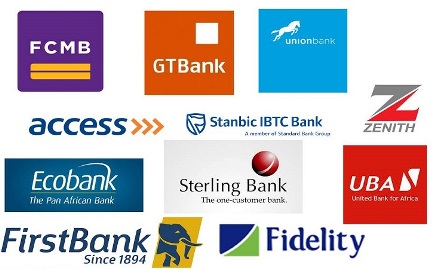…levy On Every N10,000 Transfer
Despite hunger in Nigeria, the Federal Inland Revenue Service (FIRS) has directed all banks in Nigeria to enforce a mandatory N50 levy on electronic money transfers exceeding ₦10,000.
This directive aligns with the provisions of the Finance Act, which introduced the Electronic Money Transfer Levy (EMTL) as part of the government’s revenue generation efforts.
The EMTL is a fixed charge applied to qualifying transactions, and its implementation is expected to boost federal and state government revenues.
According to the FIRS, the levy is applicable to all forms of electronic transfers, including internet banking, mobile money platforms, and Point-of-Sale (POS) transactions.
The responsibility for collecting and remitting the levy lies with financial institutions, which must ensure compliance with the directive.
What Does This Mean for Bank Customers?
For every electronic transfer exceeding ₦10,000, bank customers will now pay an additional ₦50. For instance, if a customer transfers ₦20,000, a total of ₦20,050 will be debited from their account. This levy is separate from any service fees charged by banks for processing transactions.
Reactions from Stakeholders
The directive has sparked mixed reactions among Nigerians. While some view it as a minor inconvenience, others see it as an additional financial burden in a country already grappling with economic challenges. Critics argue that the levy could discourage cashless transactions, contradicting the Central Bank of Nigeria’s (CBN) drive for a cashless economy.
However, the FIRS maintains that the levy is essential for funding critical public services and infrastructure projects. “This levy is not new. It is part of the Finance Act, and the banks are simply implementing what has already been approved by law,” an FIRS spokesperson stated.
Implications for the Economy
The introduction of the EMTL is expected to generate significant revenue for the government. Under the Finance Act, revenue collected from the levy is shared between the federal and state governments, with 15% allocated to the federal government and 85% to the states.
Economists argue that while the levy could enhance government revenue, its success depends on proper management and transparency in fund utilization. There are also concerns about the potential impact on the informal sector, which relies heavily on electronic transfers for business transactions.
As the FIRS pushes for the implementation of the N50 levy on electronic money transfers, Nigerians are adjusting to the reality of an additional cost on their financial transactions. While the policy aims to increase government revenue, its long-term impact on the cashless economy and financial inclusion remains to be seen.
Bank customers are advised to stay informed about how the levy affects their transactions and to factor in the additional charge when making transfers.

